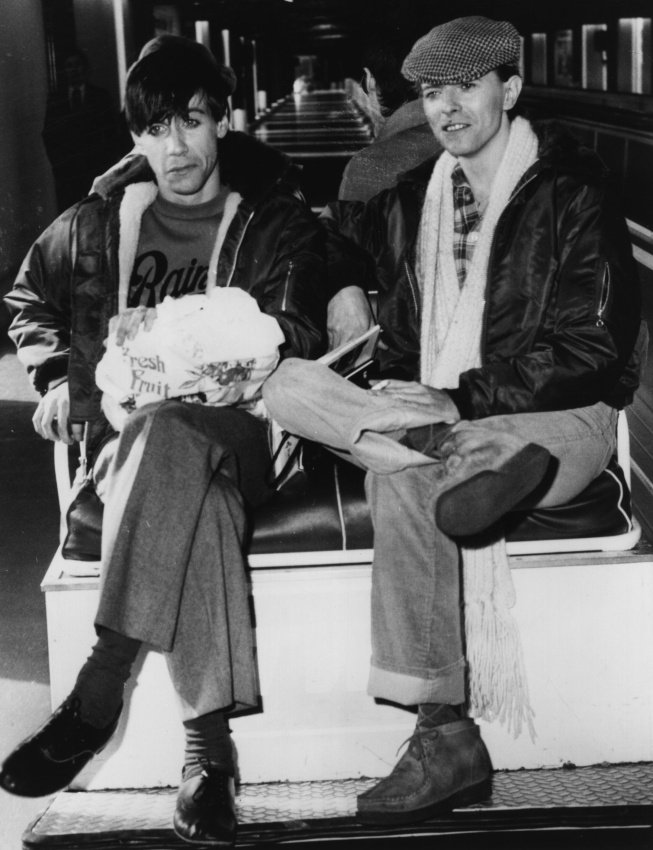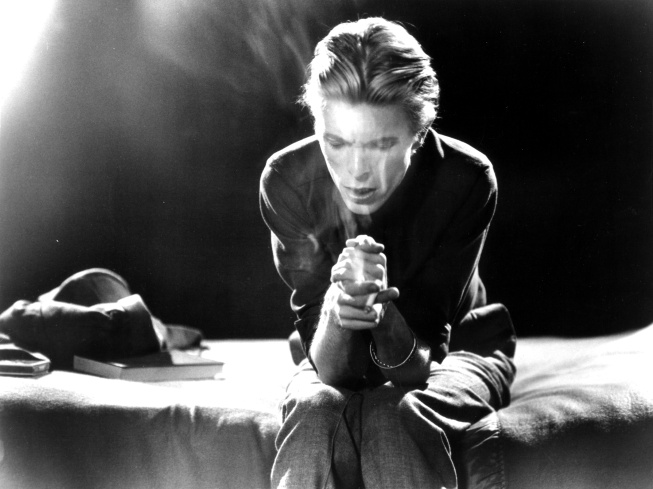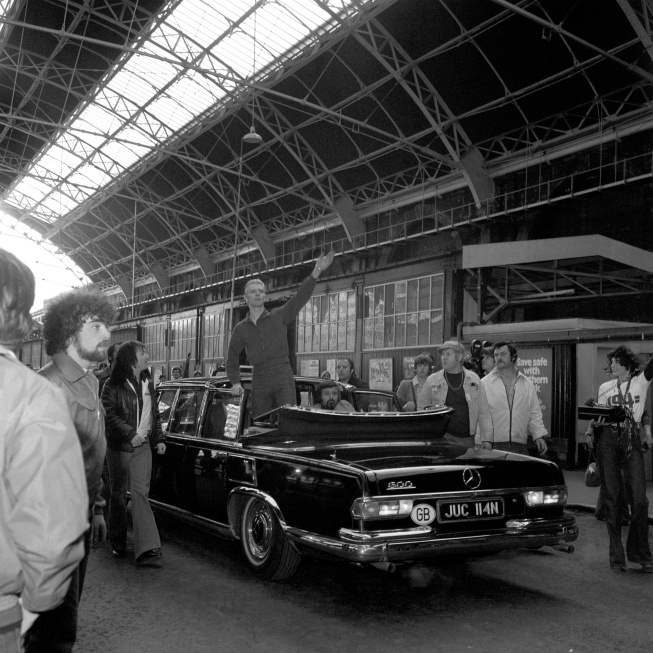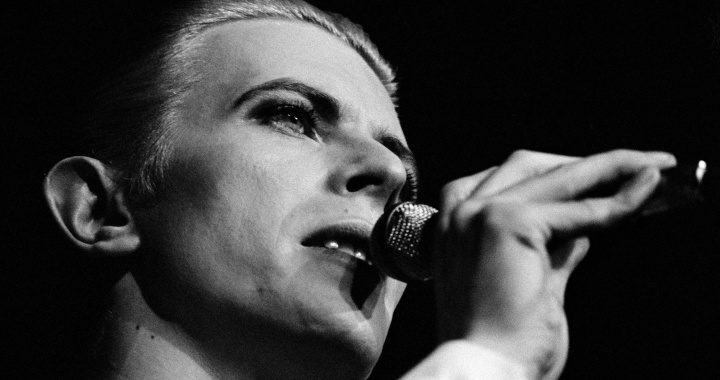He weighed just 40 kilos and was eating red and green peppers, milk and cocaine when David Bowie played the ‘skinny white duke’ and embarked on the ‘White Light’ world tour. Taking advantage of a few days off, he decides to take a trip to Moscow with part of his troupe, including Iggy Pop. At the border, he was arrested and seized books on Goebbels and Albert Speer, as well as a “stash” of Nazi memorabilia. The incident, along with pro-fascist statements or the alleged Nazi salute at Victoria Station, prompted the pop icon to apologize for decades for his “theatrical talkativeness”.
David Bowie was crossing his darkest period on the release of his tenth album, From station to station, in January 1976. He himself said he barely remembered the creative process of the six songs it contains and what he remembers is “because I read it.” When he recorded it, he was an emaciated drug addict in a state of “psychic terror”, as reported by the independent media. He spent entire days without sleep. His diet consisted mainly on red and green peppers, milk and cocaine. He weighed barely 40 kilos. And as he would later admit, he paid for his cocaine addiction. “With the worst manic depression of my life. My mind was in the clouds, I was broken into pieces. I was hallucinating 24 hours a day… I felt like I had fallen into the bowels of the Earth.”
And in this state, He reinvented himself again playing his bloodiest character: The thin white duke. The “skinny white duke” appeared in uniform with black trousers with tweezers, a waistcoat and a white shirt. Orange blonde hair, brushed back. He himself defined it as “a very Aryan guy, fascist style – maybe a romantic without any feelings”. He thus undertook a world tour with various names: Isolar – 1976 Tour, The visit of the white light o Thin White Duke Tour. An austere and monochrome spectacle. White lights on a black curtain.
Photo the David Bowie the 1976 / Getty Images/Jorgen Angel
After a tour of the United States and Canada, Bowie and his troupe land in Europe. Already then, in the British press, his obsession with fascism and Nazi aesthetics and symbols, has been the subject of intense debate. The most tangible proof Bowie’s flirtation with Nazism surfaced in April 1976.
The White Light tour had six stops in West Germany, in the west (there were still about 14 years to go before reunification and the fall of the Berlin Wall). Bowie had taken to his friend Iggy Pop to accompany it and according to tour photographer Andrew Kent in the book ‘Gimme Danger: The Story of Iggy Pop’ by Joe Ambrose, they were both excited. “We went through Checkpoint Charlie and drove around East Berlin in David’s limo. They loved it, they were away the whole time.” After the performance in Zurich on April 17, they had a week off before resuming concerts in Helsinki.

Iggy Pop and David Bowie / Getty Images/Evening Standard
David offered to explore the east during this short break: “He loved the trains and decided to take a trip to Moscow”, Kent account. “The group flew to the Finnish capital, but he, his manager, his assistant and Jimmy (Iggy pop) went to the Russian capital”. It was a busy trip. At the height of the Cold War, Westerners faced strict restrictions when traveling to the Soviet Union.
When the train reached Brest, the border of Poland and Russia, they were stopped. “We didn’t know what was going to happen. The train stopped and an albino KGB man walked in. He took us out and interrogated us. We were all separated. Iggy and David had been strip searched“Apparently many people were smuggling religious icons and hiding them in their body cavities. “I think they seized some books, that’s all. I don’t know what they found in David’s luggage, but they took a Playboy magazine from me.” According to Uncut, Bowie was carrying books on nazi leaders Joseph Goebbels and Albert Speer, plus a “stash” of Nazi memorabilia in his luggage. The singer alleged that he was “researching” material for a film about Hitler’s propaganda tactics.
“They let us go, telling us that someone would meet us in Moscow, but no one did. We strolled through Red Square, visited the famous GUM department store, had a caviar dinner at the Metropol Hotel, got on the train and left. We were in Moscow for seven hours,” said the photographer who documented Bowie’s tour for months. “David was just looking for something to do, and it wasn’t a political statement.”

David Bowie posing during a photo shoot in 1976 / Getty Images/Michael Ochs Archives
At the Stockholm press conference, Bowie expressed his sympathy for the authoritarian regime more directly than ever: “I think Britain could benefit from a fascist leader. After all fascism is really nationalismThe incident at the Russian border, added to these statements about Hilter, put the British music press on alert. Six days after his pro-fascist remarks in Sweden, Bowie returned to England.
Bowie arrived at London Victoria Station in May 1976. He toured the platform in his black Mercedes convertible, standing and waving to passers-by. And that’s when the the famous “hello and farewell” incidentthe salute with the raised left arm that none of those present were taken as a Nazi salute. It wasn’t until later messages that Bowie’s gesture became sinister. “This does not happen” David would say later. “I just wanted to say hello. Trust me. For the life of my son, I just said hello.. And the bastards photographed me. In the middle of the greeting… like it’s so stupid to do something like that. I wanted to die when I saw the photo”
Many publications, such as the New Musical Express (NME) under the title “HEIL AND FAREWELL”, attempted to convince readers that images of Bowie with his arm raised depicted the rock star giving a Nazi salute. Although he did not provide any evidence to back up the text.

David Bowie greets fans as they arrive at a London train station / Getty Images/PA Images
Bowie’s interest in fascism remained a flirtation. and it happened decades of explaining and apologizing for ‘loquacious theatrical remarks’ which he did in 1975 and 1976. In January 2017, a year after the death of David Bowie, Andrew Kent told Uncut: “I don’t want to talk about it… I never felt like David was a Nazi sympathizer. I’m Jewish so if anyone should be sensitive about this and have negative feelings…I just think it was what I would call a teenage attraction”.

